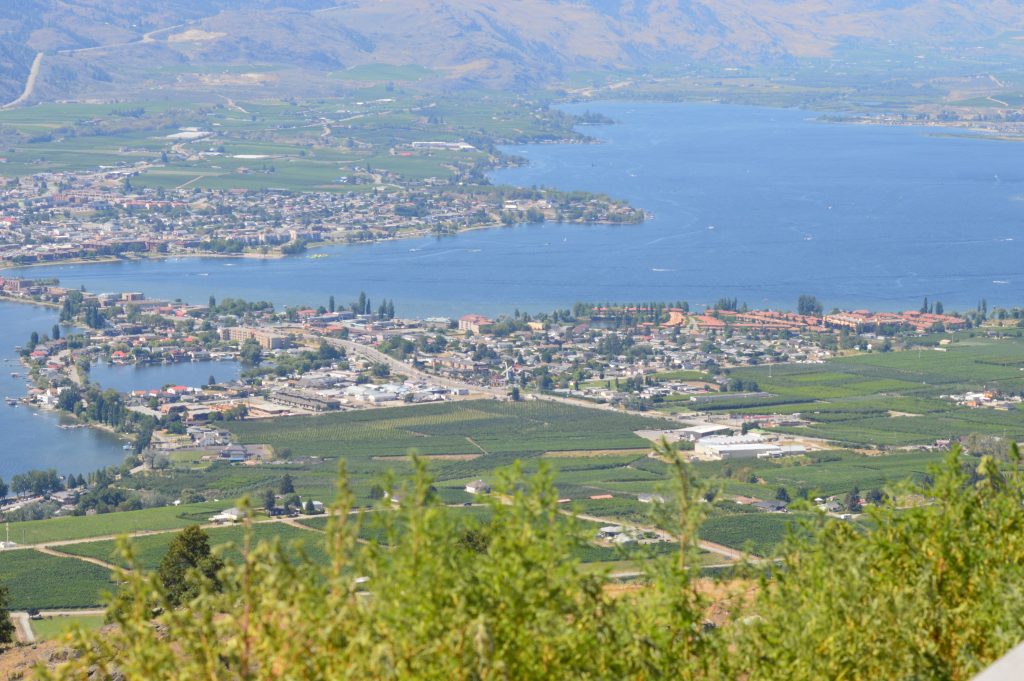Transcending Time: The Significance of Sound & Audio Archives in the Okanagan
This post is the first of a three-part series about the importance and relevance of oral histories and audio recordings based on research conducted on The Pocket Desert radio documentary. This research was funded by a Faculty of Creative and Critical Studies Undergraduate Research Award (URA) and was co-supervised by Drs. Kerrie Charnley and Emily Christina Murphy.
By Rachel Pickard (Undergraduate Researcher)
Sound creates meaning necessary for developing understanding. Meaning can be generated through prosodic elements, such as fluctuations of tone, pitch, and rhythm in one’s voice (Clement 406), and through the sound of “material contexts,” such as splashing water or the revving of an engine (Camlot 3). A speaker’s voice can communicate feeling. Just as sadness can be conveyed through a quiet and steady tone with distinct pauses and slow rhythm, a louder and alternating tone with a quick pace can reveal elation. The sounds of material things provide a sense of something tangible in a medium otherwise invisible.
Sound creates an experience. Even sound recordings and audio archives can place listeners into time that has already passed through the “real-time quality of recorded sound” (Camlot 3). As replications of sonic events once presented live, sound recordings are able to bridge the past to the present by bringing those events to listeners’ current time and space. The recorded event, ostensibly disconnected from its original moment in the past, thus becomes a seemingly timeless experience.

The audio recording of The Pocket Desert radio documentary is an example of how the timeless quality of sound recordings and audio archives are essential to understanding ongoing histories, legacies, relationships, and problems. First aired in 1995 and again in 1996 through CBC Radio’s Ideas segment, The Pocket Desert investigates concerns regarding the Okanagan’s unique yet fragile climate and ecology. At the same time, the documentary highlights the significance the land has to the Syilx Okanagan Peoples by featuring Syilx Elders, Knowledge Keepers, and community members.
Despite being produced and aired nearly thirty years ago, the issues highlighted by the speakers and the material sounds integrated throughout The Pocket Desert are eerily reflective of the Okanagan today. As an accumulation of oral accounts given by the speakers about the destruction of land, rapid urban expansion, and systemic violence against the Syilx Okanagan Peoples, The Pocket Desert documents the devastating impacts of settler colonialism in the Okanagan. Paired with the material sounds of splashing water and the sound of a car passing by on a paved road, the concerns are given a tangible familiarity that helps link the recorded past to the listening present. The sonic format of the documentary thus prevents its content from being strictly from the past. Rather, it reveals the similarities between the past and present and how the legacy of settler colonialism in the Okanagan is ongoing.
At the same time, the ongoing presence of the Syilx Okanagan Peoples is evident in The Pocket Desert. Despite settler colonialism’s violent attempts to assimilate and marginalise, the Syilx speakers in the documentary can be heard singing and speaking in Nsyilxcən, telling stories, making traditional foods, and describing their ongoing relationships to the land and each other. As The Pocket Desert reveals the ongoing legacy of settler colonialism in the Okanagan, it also documents the everlasting presence of the Syilx Okanagan Peoples and their relationships to the land through an audio format that transcends time.
Works Cited
Camlot, Jason. Phonopoetics: The Making of Early Literary Recordings. Stanford University Press, 2019.
Clement, Tanya. “The Ear and the Shunting Yard: Meaning Making as Resonance in Early Information Theory.” Information & Culture, University of Texas Press, vol. 49, no. 4, 2014, pp. 401-426.
Cornish, Gayle. Audio recording of The Pocket Desert. 1995. OSC_ARC_13-2_SR001. The Pocket Desert fonds. University of British Columbia Okanagan Special Collections and Archives, Kelowna, British Columbia, Canada.
Okanagan Special Collections and Archives. “The Pocket Desert Fonds.” Okanagan Special Collections and Archives, University of British Columbia Okanagan, https://rbscarchives.library.ubc.ca/downloads/pocket-desert-fonds.pdf.